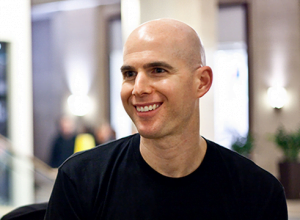‘Thirty years ago, we depended on 2,000-page texts such as Robbins Basic Pathology and Gray’s Anatomy. We lugged these around and juggled them as we did our anatomical dissections.’ Dr Micael Collins.http://bit.ly/r6b8Hy
‘Thirty years ago, we depended on 2,000-page texts such as Robbins Basic Pathology and Gray’s Anatomy. We lugged these around and juggled them as we did our anatomical dissections.’ Dr Micael Collins.http://bit.ly/r6b8Hy
Dr Michael Collins has written a thought provoking article in the Worcester Telegram & Gazette today (see above) regarding technology and the next generation of medical students. It really got me thinking about the ‘good’ and ‘bad’ effects of the multitude of on-line resources available to us as Physicians.
Having trained in the UK and worked in India for a short while, clinical examination has always been the number one all important aspect of being a great doctor. As a medical student nothing excited me more than finding a patient with positive clinical signs (just like the text books said). I was somewhat dismayed when I came to the USA and had to go through the Licensing exams (USMLE) to find that the clinical examination was with a group of actors who had no ‘real’ clinical signs. The onus of the examination was on communication with the patient. Although equally important, I couldn’t help feeling that this exam could be passed by any socially amiable individual.
This morning I arrived early at work to teach the Residents about male genital pathology. During the first 15 minutes we talked about the examination; how to make ourselves feel more comfortable with the examination; how to put the patient at ease; how to feel confident in what we are looking for; how to approach the examination with a system; how to use the examination as a learning situation for the patient (self-testicular examination is important in preventative health care).
As I continued to teach about male genital pathology, we kept coming back to ‘clinical examination’ and the importance of the examination in leading to a diagnosis.
Today we are so fortunate as Physicians to have instant access to the most current up-to-date information on line. We can access amazing 3D anatomical visuals on-line. We can instantly find out the dose, side effects and interactions of medications. Most physicians have access to the Internet during a consult and many have an iPhone or iPad at hand for instant reference. We no longer depend on our memory.
One thing does concern me though. I worry that our clinical skills will be lost among the ‘downloads’ and ‘uploads’. I worry that medical students will be so directed towards accessing information that they will not focus on the clinical examination. Photographs of clinical signs can be found so easily in one quick google search; but there is nothing so thrilling as finding them yourself.
I will always believe that the difference between a ‘good’ doctor and a ‘great’ doctor lies in the ability to do a thorough clinical examination and put together the clinical signs to come up with a diagnosis. I then might reach for my iPhone to find out which medication to use….
As Physicians and educators we need to ensure that clinical examination skills are not lost and that medical students feel confident in their ability to examine. There should never be an excuse for leaving the stethoscope behind; listening to heart sounds is one thing an iPad can not do.







